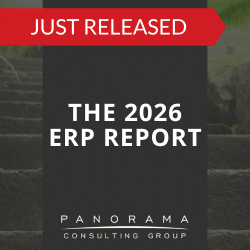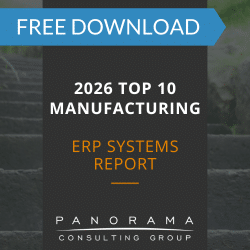When an ERP implementation fails, it’s easy to blame the software, the project manager or the ERP consultants but there are less obvious causes.
Think organizational change management. This ERP implementation success factor is all too often overlooked or underutilized, but smart companies know that it is instrumental in changing, rebuilding and sustaining a strong, collaborative corporate culture.
Is your staff motivated? Do employees feel respected? How open are employees to change? Having answers to these questions (and many more) is key to understanding your current organizational culture and what you would like it to look like in the future.
ERP software thrives in companies where leadership is strong and where corporate values are demonstrated in all of the organization’s endeavors. Organizational change management can help leaders communicate these values with employees and deliver messaging that keeps them focused on the future – not stuck in the past.
Following are four characteristics of organizational cultures that can help affect the alignment necessary for ERP success:
- Collaborative – ERP systems break down silos between departments so it’s important to promote collaboration before the new system arrives to ensure users are prepared for the new business processes. Collaboration between departments is essential because ERP systems are designed to ensure continuity of data by making all data available across the organization.
- Enthusiastic – Employees with a positive attitude will be the first to embrace change, and your organization should recognize and reward these change agents to draw attention to the type of culture it is aiming to achieve. When hiring new employees, look for signs of a positive attitude to ensure that they will fit within your ideal organizational culture.
- Visionary – Companies should hold regular meetings to discuss the larger purpose of the organization and maintain focus on what’s next. During these meetings, leaders should also discuss training needs and define the gaps between current business processes and ideal business processes.
- Unrelenting – Structuring a strong organizational culture should be a continuous process, which means it should be happening before, during and after the ERP implementation. Your organization should always be moving forward. The best way to decide the next step is to establish benchmarks and best practices from competitors and clients within your industry.
It’s been proven time and again that for a successful enterprise solution implementation, an organization should always place emphasis on organizational change management. This essential budget item helps establish a positive and proactive organizational foundation for the new ERP system. To learn more about successful ERP implementations, view our on-demand webinar, Five Key Organizational Change Management Challenges With ERP Implementations.












